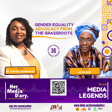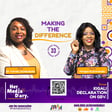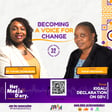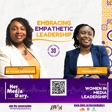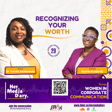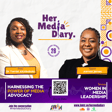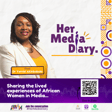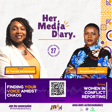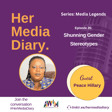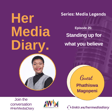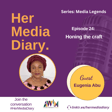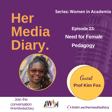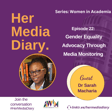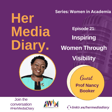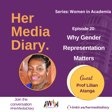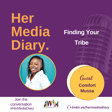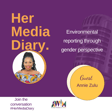
Her Media Diary Episode 18: "Amplifying the Voice of Mother Nature" With Annonciata Byukusenge
Annonciata Byukusenge is a multimedia journalist with 12 years of experience. She holds a bachelor's degree in Journalism and Communication from the University of Rwanda and a certificate in Media Management from Women in News. She has worked with a number of media houses and NGOs including rwandanews24 and theforefrontmagazine.
In this episode, Annonciata talks about her passion for environmental reporting and how she nurtured the desire to advocate for the environment through the media following the Rwandan genocide.
Annonciata identifies with women, Mother Earth and wildlife who are not just vulnerable but are not able to speak up for themselves especially when violated.
Subscribe to Her Media Diary now on your favourite podcasting platform https://linktr.ee/hermediadiary
Learn about African Women in Media https://africanwomeninmedia.com
List of organisations/ Resources for Environmental Journalists
AWiM/UNEP Environmental Journalism Campaign
Earth Investigations Programme
The Health of Mother Earth Foundation (HOMEF)
United Nations Environment Programme
African Network of Environmental Journalists (ANEJ)
